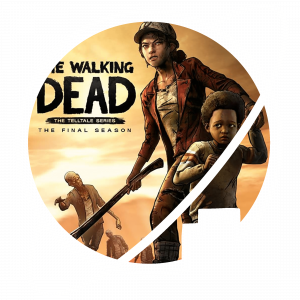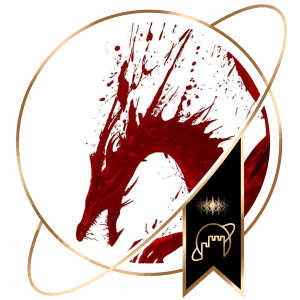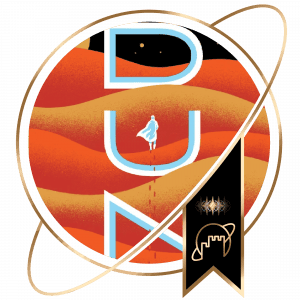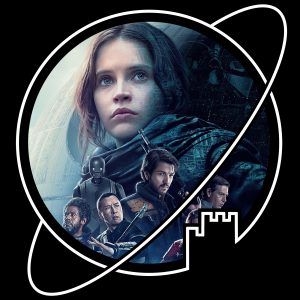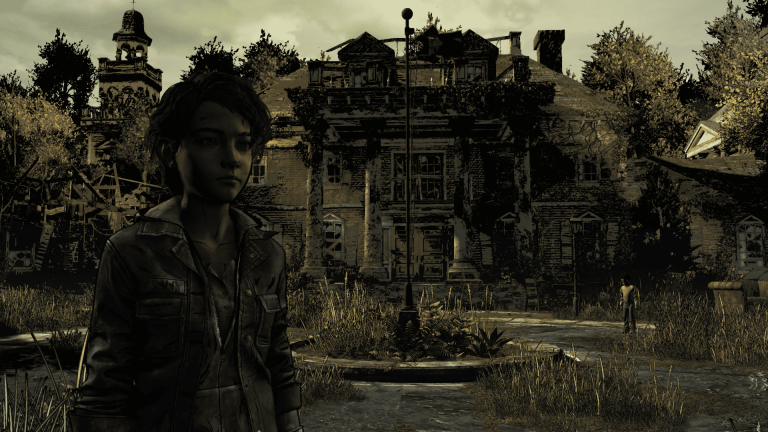Jop: It’s me. The noob in the title, that is. I’m ashamed to admit I’ve horribly neglected the science fiction genre in the first three decades of my life. In fact, I could count the science fiction books I’ve read on only one hand. Yeah, I’ve got little excuses…
Though, mayhaps this was a blessing. Why? Well, now I’ve got this whole new genre to explore. I’m somewhat of a tabula rasa, a fresh pair of eyes. Through my journey of exploration, others get the chance to relive and reevaluate their own science fiction experiences! Why did they fall in love with this genre? Do they recognise themselves in my growth and/or growing pains? And if they are science fiction noobs like me, which paths should they tread to successfully evolve?
Today, I’ll reflect on my first experiences with science fiction so far. Luckily, I’m accompanied by Peter, who’ll be something of a mentor character to me on this journey. Together we’ll take a look at science fiction’s wide range of stories, and see if I’m on the right track or in desperate need of some guidance. Let’s begin!
Check out our other posts on content mentioned here:
Let's start somewhere simple: what is Science Fiction?
Perhaps I’m approaching it too scientifically (pun not intended), but first I’d like to establish a clear understanding of what science fiction is as a genre. I know, this is tricky business. The boundaries of genres are by nature quite elusive. However, it’s something I occasionally still wonder myself.
Like I already said, you’re the veteran here, Peter. I’ll shamelessly pass the difficult questions on to you. Could you share a brief explanation of what you believe is the essence of science fiction?


Straight to the essence, then? I believe that at its core, science fiction is the speculative genre that deals with the consequences of (hypothetical) future events for our society. Stereotypically, those future events are advances in science and technology, but other subgenres, such as alien invasion stories or cli-fi, deal with different types of futures.
I think it is worthwhile to pause here and note that that definition differs from what society at large tends to label as science fiction. People less invested in these kinds of debates treat science fiction more as a setting or a visual style and less as a genre: any media that include elements of advanced technology or space travel are in their eyes science fiction. The textbook example is George Lucas’ Star Wars, which features spaceships and laser guns, but really never delves into the meaning of space travel for the society that it portrays. There’s also magic. Is that science fiction? Most people would probably say yes, but it doesn’t fall within the scope of my definition above.
I will stay away from unnecessary pedantry. I’m not saying these people are wrong. But I think the above distinction is important to understanding, as you requested, the ‘essence’ of science fiction. There is a lot of media out there that is branded ‘science fiction’, that is really very much akin to fantasy in a high-tech costume. And in that case, whether you prefer one or the other is mostly a matter of taste, since those stories offer similar rewards.1
I believe that the ‘ideal’ ‘true science fiction’, on the other hand, differs from fantasy stories in two important ways: first, it is grounded in our reality, and (mostly?) obeys all the same laws that our world does; and second, it is an honest attempt at exploring how our reality would change as a result of hypothetical future events. The essential exploration, therefore, tends to be one of society, not character.2 Science fiction is an inherently political genre in a way that fantasy just isn’t, and I think that is the essence that sets it apart.
Fair enough. We’ve discussed this a little before in the past, and I think it’s an interesting distinction. Without favoring one interpretation above the other, it clearly shows how diverse the science fiction genre can be.
I notice that your definition emphasizes the importance of (hypothetical) future events. To further clarify, does this mean that science fiction, if it’s a story in our world, can never take place in the past or present?


Well, I’m a lawyer so I can tell from practice that almost no definition is watertight. Stories set in the present can clearly be science fiction – they tend to extrapolate from the now into a possible future. Stories set in the past are slightly more complex – 1984 didn’t cease to be science fiction in 1985. And if your alien invasion story is set in 2001 rather than 2021, I wouldn’t necessarily say that makes it alternate history. If you write a story where Da Vinci invents a rocket to the moon, or a laser gun, however…
That means you sometimes run into interesting situations – is Jules Verne’s Twenty Thousand Leagues Under the Sea science fiction? Is it steampunk? Is all steampunk science fiction? I’ve seen people classify steampunk without sufficient science fiction elements ‘gaslamp fantasy’, I’ve seen others rule out every story with mystical elements as science fiction. At that point, I feel as though we’re categorising for the sake of categorising and not because the category helps our understanding of what we’re reading.
I think what is important to keep in mind, is that the speculative elements in science fiction should aim to, or should be able to, speculate about the impact of hypothetical future events on a society that is in important ways like our own.
Very well, with that good working definition in our pockets, I believe we can dive deeper into our respective science fiction journeys…

Looking back: The Journey so far
Peter, let’s prove why you’re a veteran and I am…not. When did you first come into contact with science fiction and what were some of the most formative media you’ve enjoyed since then? Afterwards, I’ll contrast your experiences with mine.


My parents are massive science fiction fans (devouring hundreds of pages every holiday since they were still in university), so the book (and movie) shelves in the family home have always been well stocked with sci-fi stories. I know I just made a case that Star Wars isn’t science fiction, but…my dad is a fan, and I was probably about six years old when I was first confronted with its visual style. I’ve been hooked on sci-fi since.
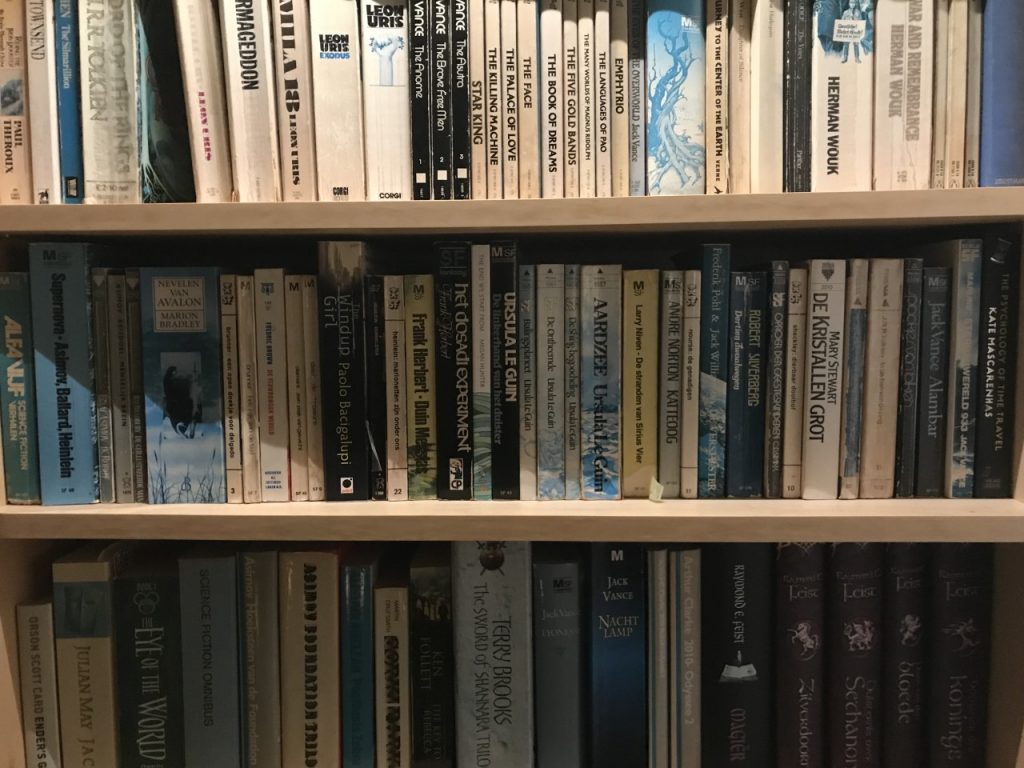
It’s a (relatively mediocre) shot of my parents’ “old-timey” sci-fi shelf (there’s some secret fantasy intruders, but ignore those) with mostly books from their uni years – can you imagine people used to read in translation back then?
Many of my early experiences with science fiction were with the classic stories from the second half of the last century that straddle the divide between fantasy and science fiction: Jack Vance, Julian May, A.E. Van Vogt – mostly because that was what was readily available on my parents’ shelves. I loved my lego Star Wars sets to bits, loved the lego alien space station the boy next door owned. I started drawing and imagining my own mechas (imaginatively dubbed ‘superrobots’) when I was maybe seven years old. I started playing Warhammer 40K when I was about ten. By then, I had fallen in love with science fiction as a setting.
When I grew a bit older (about high school age) I started reading more of the science fiction that I would describe as ‘true science fiction’. Looking back, that’s sometimes still pretty young to be reading about the societal problems caused by advancing technology, but back then I didn’t mind. I particularly loved (and still love) Asimov’s robot novels.
From there, there’s really too much to list. I’m sure many of our readers have read even more than I have, and there are tons of books and games and other media that I should really get to that are gathering dust on my various shelves of shame. There is just so much out there to explore! I feel relatively comfortable, however, saying that I have a lot of experience with science fiction stories – and if you will accept me as such, I would love to be your mentor throughout this tale.
You’ve convinced me! I can’t think of someone I’d rather have on this specific journey.
As for my experience… I believe that my first taste of science fiction also relates to Star Wars. When I was six or seven years old, I played the Phantom Menace video game at a friend’s place and later watched the movie. It didn’t make much of an impact, but I thought it was fine (unpopular opinion, but I remember thinking Jar Jar was funny). It then took something like ten years before I binged the other movies with my then brother-in-law. I can’t remember any other science fiction experiences in that ten-year gap, probably because I was busy with consuming as much fantasy as I could get my hands on.
That brother-in-law did his best though. He also introduced me to The Matrix trilogy, which I found intriguing. During high school’s philosophy lessons we watched several other science fiction classics, such as 1984, and movies such as A.I. by Steven Spielberg. I also watched a handful of mainstream science fiction movies (Inception) and a load of disaster movies (that were almost science fiction) and first contact movies, but most of these were primarily focused on the action scenes and not so much on any interesting (political) implications.
It was also around this time I started watching The Walking Dead, a franchise that technically fits the stated science fiction definition, I believe? Correct me if I’m wrong. If it counts, however, the themes and setting of the The Walking Dead-universe were the first time a science fiction medium truly grabbed me for a longer time period. Especially the Telltale Games. Since then I’ve discovered I quite like post-apocalyptic settings.
In more recent years I’ve watched series such as Sense8 (which I truly loved), Black Mirror and The 100. My Bioware sister, Lotte, urged me to play the Mass Effect games, which I of course did. And you introduced me to Dune, the first real science fiction book I’ve ever read. Another science fiction constant in my life would be the tabletop roleplaying campaign (Seed of Mars) you’ve been running over the last few years. That’s about it, actually.
What do you think?


Well, you’re certainly no veteran but compared to the general populace, I don’t think you’re doing that poorly.
Interestingly, it looks as if you have almost never picked up a science fiction story because you wanted to yourself, but always because others recommended (not to say: pushed) you to give them a go. So… do you even really want to delve into science fiction? Or is it peer pressure again? Do you need a safe word?
You know what, that’s actually a rather fair observation you make? Wow…
However, my current wish to delve deeper into the world of science fiction is entirely intrinsically motivated (as far as I can determine, in any case… but that’s good enough for me!).
Bring it on!

Looking inward: Where has the Journey brought us until now?

I’m glad you really want to take this dive! Before we pick our first stepping stones, let’s take one final look at your experience with science fiction so far. We have quantified our experience – I have a lot of experience, and you have less – but we haven’t qualified it. You’ve experienced a few sci-fi tales – how has it been for you so far?
Good question. Overall my feelings are quite ambivalent, actually. There were some things I really liked – mostly the stories that were centered around a specific interesting concept, as they do in Black Mirror – but on the whole I’ve yet to find something that rocks me to my core. Something that will haunt me for years and convinces me that the science fiction genre deserves more time/love than that I currently give it. Perhaps I’m asking too much, but I’m aware I’ve only dipped my toe in the vast ocean of science fiction media. There must be something somewhere that will sweep me off my feet, I’m sure of it. Something that touches my heart as well as challenges my brain.


We all know that you have experienced a tonne of fantasy stories, and that many of them did, in fact, rock you to your core. I argued above that a lot of science fiction is really fantasy in a high-tech costume. Could you put your finger on why stories set in space haven’t resonated with you in the same way that those set in an alternate medieval Europe have?
Robin tends to say she rather reads a story that takes place in a forest than a story that is set on a spaceship. Why? Because she enjoys mystical atmospheres and a focus on natural elements, as is predominant in fantasy.
Robin’s explanation might seem a little reductive, but it resonates with me. I don’t really like technology. Don’t take this wrong, I’m not a technophobe or anything. It has brought humanity a lot of good things, and I think it can offer extremely interesting questions and plot points for science fiction stories. However, in and of itself I don’t find technology very… romantic. I think it reminds me too much of our current world. This would also explain why I have a soft spot for post-apocalyptic settings; the technology in these worlds is often strongly diminished, if not completely faded away. As this usually comes with nature reclaiming earth, the aesthetics become more like that of fantasy.
Just look at this beautifully desolate setting, a future in which zombies toppled human society. Structures are crumbling and nature is taking over. Bonus points when a new layer of ‘civilization’ is built upon the ruins of the former.
However, I believe there’s more to it, though I find it hard to put it into words. For example, why do I love Dragon Age, but thought Mass Effect was…just fine, while they are in many ways very similar games?
It might have something to do with science fiction’s pursuit to at least appear scientifically plausible, even if it’s almost fantasy in most other aspects. This comes at the expense of mystery and wonder for me. For example, I prefer my magic systems soft or medium rare. I don’t wish to know all the rules, as long as they are vaguely implied. With science, however, I’m inclined to chase after the rules with the intent to really understand them. Then, there are roughly two outcomes; 1) everything is logically sound and therefore, I lose a sense of mystery, or 2) there are some grating holes in the ‘science’, which lessens my enjoyment of the story.
I’ll admit though, I still have some soul searching to do before I can satisfactorily answer this question.


So let’s embark – or maybe I should say – continue our way – on that journey!
Looking forward - Whereto?
If this is indeed a hero’s journey, I have only just yet passed the threshold. I still have much to learn.
Peter, I’m your Padawan; guide me. What media should I – and all those who wish to join me on this path of enlightenment – consume for the next leg of this journey?


That’s a tough question because there is an overwhelming abundance of choice. But I think we should try to limit our selection to media closer to the ideal of ‘true science fiction’.
Sounds good to me! As these are to be my first real steps, perhaps something from the earliest days of science fiction to start with? Some classics that helped define the genre, so I can see where it all began?


I think that would be a good place to start! I know some of you readers are already (mentally) shouting names at your screen – but we have to pick so we’ll have to disappoint some of you. I’ve decided not to ‘take it easy’, but rather to go for some of the most iconic authors of the genre and some hard sci-fi.
I’m glad you already read Dune, that’s one classic already ticked off. In the end, I’m going to go with a number of works by three authors: I, Robot by Isaac Asimov, because Asimov is synonymous with classic sci-fi and I love it myself; Do Androids Dream of Electric Sheep, The Minority Report, and I Hope I Shall Arrive Soon by Philip K. Dick, because I think Dick’s writing offers an interesting mix of different classic ideas and settings, and finally Consider Phlebas by Iain M. Banks – a little different from the golden age stuff, a little more modern, but still a classic – and I think the Culture is a fascinating setting to explore in getting to know sci-fi.
Let me know once you’ve finished them, and we’ll see what you think. In the meantime – enjoy!
So, are any of you fantasy fanatics with no sci-fi experience? Or maybe sci-fi aficionados who never picked up The Lord of the Rings? Let us know on our social media!
1. Yes, ‘sci-fi setting’ stories may contain elements of ‘true sci-fi’ that fantasy stories will not, but I’m trying to make a point here, and too much nuance would kill it dead, and also make this conversation twenty pages long.
2. Jop and I have discussed this position at length, and maybe one day we’ll write you a little something delving into this as well!Jop and I have discussed this position at length, and maybe one day we’ll write you a little something delving into this as well!



